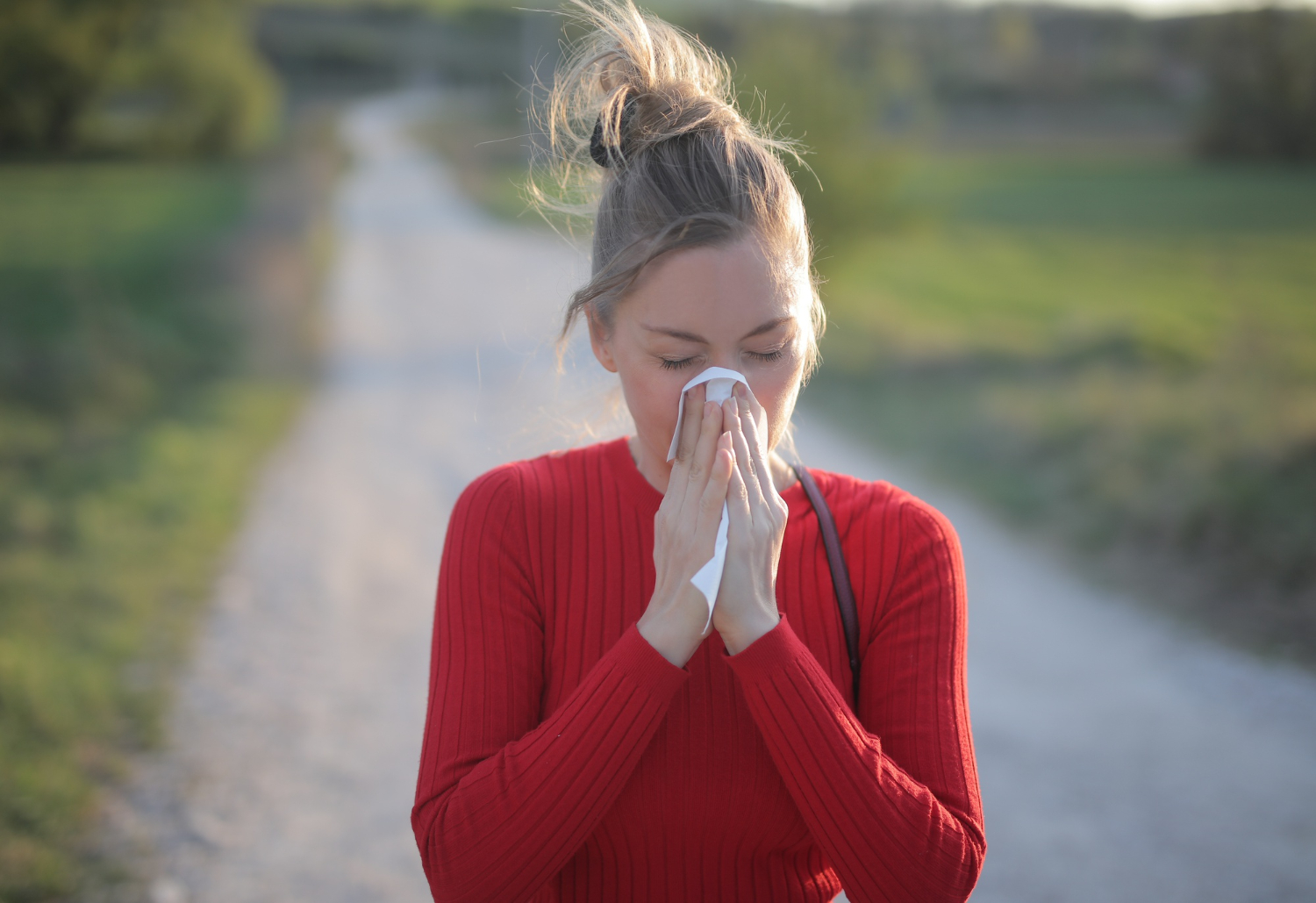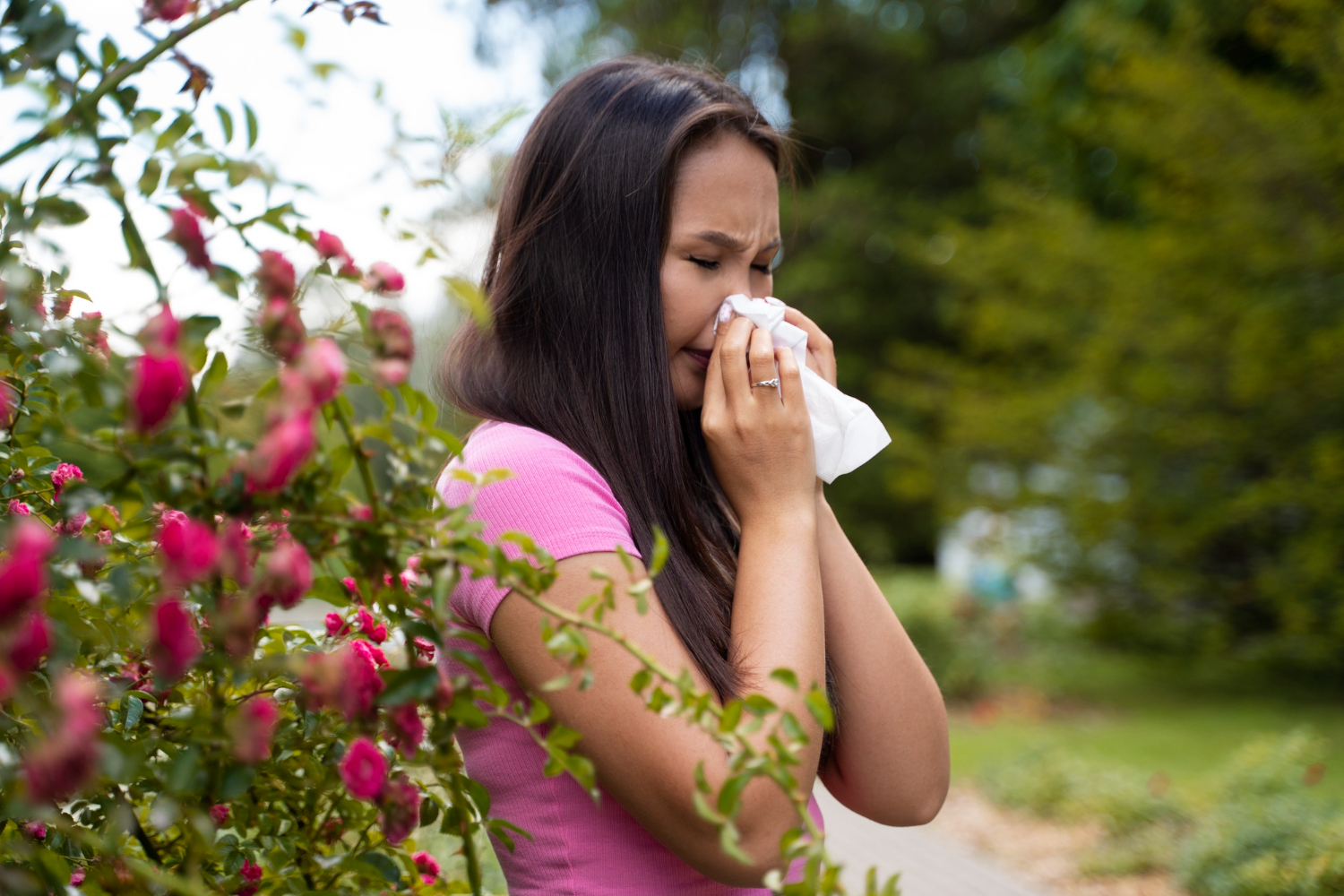
Can Allergies Cause Asthma
At Frontier Allergist, we often encounter questions about the relationship between allergies and asthma. It’s a topic that concerns many people, especially those who find themselves sneezing at the slightest hint of pollen or suffer shortness of breath during peak pollen seasons.
But what is the actual connection between these two conditions?
In this blog post, we’ll dive deep into understanding how allergies can not only trigger asthma but also potentially make it worse.
So, let’s get started and see what this means for you.
How do Allergies make Asthma worse?
Allergens like pollen or dust mites cause your body to release histamine. This triggers allergic reactions that can make you achingly sneezy and stuffy.
But for people with asthma, allergens also irritate the already sensitive airways. Making them swell up, narrow down, and get clogged with mucus.
The result? You must’ve already experienced wheezing, coughing, shortness of breath, and chest tightness.
This type of dual response means that for individuals with allergic asthma—a type of asthma triggered by allergies—managing exposure to allergens is just as important as keeping their asthma symptoms in check. It’s not just about sneezing less; it’s about breathing better.
What are common allergens that can trigger allergic asthma?
1 Dander
Pet dander—the tiny flakes of skin shed by furry or feathered animals—is a frequent asthma trigger.
When inhaled, dander particles can spark an immune overreaction in those with allergic asthma—leading to inflammation in the sensitive airways.
2 Pollen
Tree, grass, and weed pollen are notorious for aggravating allergies and asthma. Pollen grains floated in the air can cause inflamed, constricted airways when breathed in by those with asthma.
This exacerbates wheezing, coughing, and other symptoms.
3 Mold
Mold’s a tricky one. It loves dark, damp, humid spots in your house where it can grow into fuzzy colonies and send its tiny spores floating through the air.
When mold releases its tiny spores, these particles—depending on the area—often get inhaled, where they cause swelling and extra mucus.
If you’re someone with asthma, there’s a high chance of being rendered breathless. This is why keeping moisture under control in your home helps prevent mold and asthma from getting out of hand.
4 Dust mites
You can’t even see these nasty little creatures living in your home’s dust. But just because they’re small doesn’t mean they can’t cause big asthma problems.
They feed on flakes of old skin cells and hang out in carpet, bedding, upholstered furniture – anything fabric-based with dust they can munch on.
As they eat and poop and die, they get mixed up with the dust particles that you might unknowingly inhale.
When inhaled, they can make your airways inflamed and cramped with mucus.
This sets off an asthma attack real quick. But you can limit places where dust mites thrive by regularly washing fabrics and vacuuming.
5 Cockroaches
Cockroaches are total home crasher pests. And way more than just an “icky” problem. Their leftover bits and pieces stirred into the indoor air can cause significant asthma trouble.
Because as roaches crawl all over, they leave traces of poop, saliva, and skin shedding wherever they go. For kids breathing that air, it’s terrible news. Those particles float into their lungs and drive asthma berserk.
Their little airways get angry and swollen, flooded with gunk. Cue the wheezing, coughing, tight chest—the whole awful routine. Studies show up to 60% of inner-city kids battle roach-fueled asthma flare-ups!
Identifying your triggers is critical to taking control of your asthma. At Frontier Allergist, we identify patients’ asthma triggers to create customized management plans for reducing exposure.
Symptoms of allergies and asthma
Understanding the symptoms of both allergies and asthma? That’s key for nipping those reactions before they happen!
Let’s dive into the common signs—it’s not just about sneezing your head off.
Watery and itchy eyes
Have you ever walked into a cloud of pollen and felt like your eyes were becoming itchy and leaky? That’s your body putting up its dukes against allergens.
But if you have asthma, these pesky eye annoyances are more than a mere bother.
They’re the uninvited guests for your immunity and stir up trouble for your lungs, too!
Keeping your eyes and lungs in check is essential for staying comfy and breathing easily.
Sneezing
Sneezing is nature’s way of giving allergens the boot. But hold on, for folks with asthma, it’s not just a sneeze; it’s a warning alert.
These sneeze-fests are tip-offs that allergens are crashing the party, possibly riling up your airways. Staying on top of this can keep that asthma from throwing a curveball.
Runny nose
Suffering a runny nose is not just your body throwing a fit over allergens; it’s a full-blown cleanup operation. But, if you’re someone with asthma, this can turn into a breathing struggle.
That nasal congestion and yucky drip in the back of your throat. Experiencing this is like a nightmare you wouldn’t ever want again.
Rashes and hives
Rashes and hives—those red, itchy, and often swollen patches—are your body’s way of raising the red flag against allergens.
These skin reactions happen when your immune system releases histamines and other chemicals while trying to protect you, leading to inflammation.
But for people with asthma, these skin symptoms are not just surface-level issues. They signal that your immune system is in high alert mode, which might quickly trigger respiratory reactions—including asthma flare-ups.
Are allergies and asthma treated differently?
Regarding allergies and asthma, think of them as two peas in a pod that don’t exactly play by the same rules.
Yes, they’re related, but what are their treatment plans? They can be as different as night and day.
Allergies, those pesky reactions to things like pollen and pet dander, often call for a lineup of antihistamines, decongestants, and nasal sprays. These meds are like peacekeepers, keeping your immune system from going overboard.
But asthma—that’s a whole different ball game. It’s about maintaining those airways open and calm. We’re talking about inhaled corticosteroids, bronchodilators, and sometimes more advanced treatments like biologics.
But here’s a thing: when you’re juggling with allergic asthma, the game changes and becomes about finding a sweet spot where both are under control.
We at Frontier Allergist get this, so our approach is all about personalized care. We don’t just throw a generic plan at you; we tailor it, considering how your allergies and asthma interact.
So, while there’s overlap in how allergies and asthma make you feel, their treatments can be distinct, each with its flavor and strategy.
Breathe Easier with Personalized Care from the Experts
Suffering allergic asthma can feel like walking around blindfolded. But here’s the good news—it doesn’t have to be that way.
Understanding the connection between allergies and asthma, recognizing the symptoms, and knowing the different treatment approaches can help you take control of your health.
Remember, while allergies and asthma cross paths, they each require a unique management playbook. At Frontier Allergist, we’re committed to guiding you through this journey with personalized care and expertise.
Whether pinpointing those triggers or tailoring a treatment plan just for you, our goal is to help you breathe easier and live better.
Do you feel overwhelmed by your sneezes and wheezes? Don’t suffer it alone. Reach out to us at Frontier Allergist.
We’ll team up with you to create a health strategy that turns those life-threatening challenges into minor annoyances.
Frequently Asked Questions
1 How do I know if I have allergic asthma?
Figuring out if you’ve got allergic asthma is pretty easy, mainly if you’ve found yourself struggling to breathe (or wheezing) along with a runny nose and itchy eyes during peak pollen seasons. If you need more clarification, tests like spirometry and allergy skin testing can also help unravel this mystery.
2 What is the treatment for allergic asthma?
Treating allergic asthma is a two-step approach. On the one hand, you must keep your asthma symptoms in check—usually with inhaled corticosteroids and bronchodilators.
On the other hand, you need to minimize contact with allergens. This might mean allergy shots (immunotherapy), antihistamines, or intelligent strategies to avoid triggers. At Frontier Allergist, no two people will have the same treatment plan.
3 How common is allergic asthma?
Allergic asthma is prevalent. It’s the most common type of asthma out there. A large chunk of the population with asthma also has some sort of allergy. So, if you feel like you’re juggling both, you’re not alone.

Written/Reviewed by: Dr. Neha Reshamwala
NPI number: 1780874578
Page last reviewed:


 All blog posts
All blog posts





